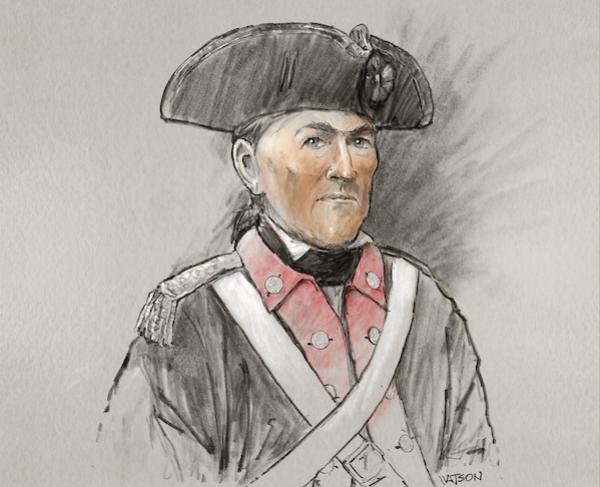Robert Kirkwood

Robert Kirkwood was born near Newark, Delaware in 1756. He grew up in a large Irish immigrant family and attended Newark Academy, hoping to become a minister. However, the beginning of the Revolutionary War altered his career hopes.
Kirkwood commissioned as an officer in the Delaware Regiment in January 1776, and arrived in New York to join General Washington’s army at the Battles of Long Island and White Plains. Kirkwood led well under fire and was quickly promoted. He started keeping a diary of troop movements, engagements, and daily military happenings.
As a captain, Kirkwood fought in 1777 Brandywine and Germantown. That winter during the brief period his regiment stayed at Valley Forge, he noted the challenges of constructing huts and preparing the winter encampment. He fought at the Battle of Monmouth, before heading south to fight the British in the Southern Campaigns.
Kirkwood battled at Camden and Cowpens in South Carolina, taking a decisive role in the American victory at Cowpens in January 1781. He went on to march hundreds of miles and led his soldiers at the battles of Guilford Courthouse, Hobkirk Hill, Ninety Six and Eutaw Springs. Though not present at the Siege of Yorktown in Virginia, Kirkwood noted the news of British General Cornwallis’s surrender in his diary.
At the end of the war, he returned home to Delaware and married Sarah England. His wife’s tragic death prompted Kirkwood to travel west to Ohio where he received a land grant and an officer’s appointment in the 2nd U.S. Regiment. In 1791, he joined the army at Fort Washington, commanded by Major General Arthur St. Clair for military operations along the Wabash River.
There, while fighting Native American warriors led by Blue Jacket and Little Turtle, Robert Kirkwood was killed on November 4, 1791. A friend eulogized Kirkwood as “a man who had passed through unscathed the fiercest conflicts of the Revolution, and who had faced danger and death in a thousand shapes."

